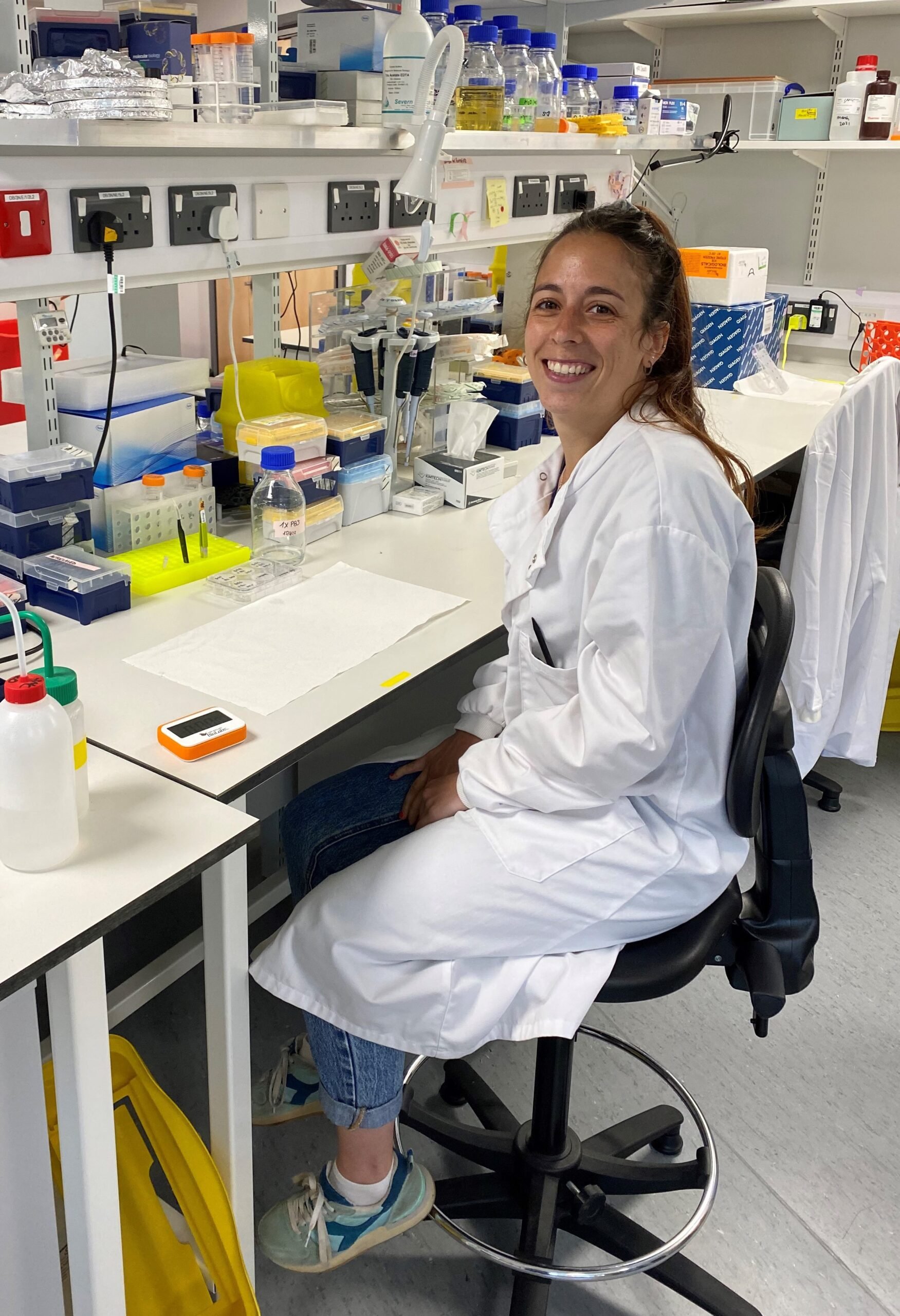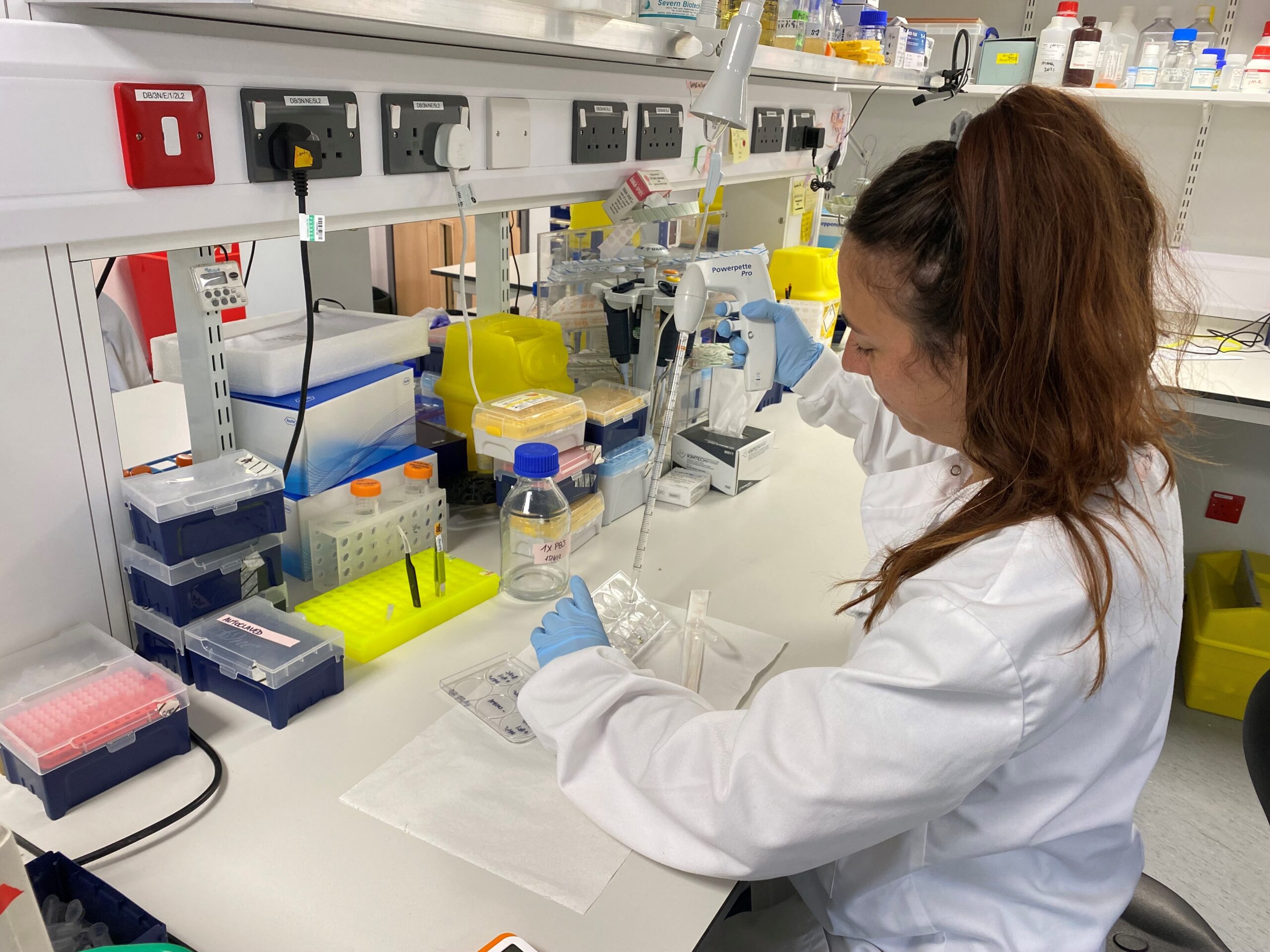BCI researcher receives new Pancreatic Cancer UK Fellowship to investigate cancer hallmark linked to therapy resistance

Dr Audrey Lumeau, Postdoctoral Researcher at Barts Cancer Institute (BCI), Queen Mary University of London, has received a Career Foundation Fellowship from the charity Pancreatic Cancer UK to investigate chromosomal instability in pancreatic cancer and its role in therapy resistance.
Launched this year, the Pancreatic Cancer UK Career Foundation Fellowships are designed to provide early career researchers with the opportunity to develop the skills and experience needed to take the first steps towards becoming an independent investigator.
Dr Lumeau, who is a member of Dr Sarah McClelland’s laboratory group in the Centre for Cancer Genomics & Computational Biology at BCI, has been awarded approximately £175,000 over two years to track the evolution of chromosomal instability in pancreatic ductal adenocarcinoma (PDAC), the most common type of pancreatic cancer.
Understanding chromosomal instability in pancreatic cancer
Chromosomal instability is a feature of many cancer types, and describes the increased tendency for alterations to occur in the number and structure of chromosomes within cells as they divide. These genetic alterations (mutations) can make it easier for cancer cells to adapt to and survive changes in their environment, including those induced by therapy.
Dr Lumeau said:
“Currently, very little is known about the mechanisms in PDAC cells that generate chromosomal instability. Our research aims to discover causes of chromosomal instability in PDAC, and to understand how this empowers cells to evade therapy. Knowing this would provide the platform to develop new predictive biomarkers of response to therapies and disease prognosis.”

Dr Lumeau will be working with collaborators from the Marseille Cancer Research Center in France, including Dr Nelson Dusetti, who have developed a unique biobank of PDAC experimental 2D and 3D models derived from samples collected from patients with PDAC.
Using these models, in combination with specialised techniques developed by the McClelland lab, the team will sequence the DNA of individual PDAC cells to track the genetic changes that occur as a result of genomic instability. They will then investigate whether these genetic alterations correlate with therapy resistance in patient-derived cells.
By adding chemotherapies to mini pancreatic tumours grown in a petri dish, called ‘organoids’, the team will analyse how chromosomal alterations evolve in individual cells in response to treatment.
Through their investigations, the team hopes to identify chromosome alterations that could predict how PDAC cells will respond to a particular treatment and, in the future, be able to guide treatment decisions in the clinic.
Dr Lumeau added:
“Our research is an essential first step towards discovering which therapies might be applicable to patients with particular chromosomal instability types. Our long-term vision is to predict responses to treatment and provide the ability to target specific mechanisms of chromosomal instability in PDAC.”
Valuable support for early career researchers investigating this hard-to-treat cancer type
Pancreatic cancer claims the lives of 9,000 people every year in the UK, and has the lowest survival of all the common cancers (the five-year survival rate is less than 7%). The low rate of early detection, rapid disease progression and the development of drug resistance contribute to a poor prognosis for patients. Gaining a better understanding of this hard-to-treat cancer type through research is therefore essential to improving patient outcomes.
Dr Chris Macdonald, Head of Research at Pancreatic Cancer UK, said:
“Pancreatic cancer is tough to research. One of the underlying difficulties is that we desperately need more researchers to drive forward the great body of work that is necessary to make progress in early detection, and improve treatment and care. We are thrilled that we are now able to fund and support fellowships at Pancreatic Cancer UK, allowing us to grow our research community and invest in the future leaders of pancreatic cancer research."
Dr Lumeau completed her PhD at the Cancer Research Centre of Toulouse in France, where she studied replication stress in pancreatic cancer before moving to the BCI to pursue postdoctoral research. In the future, Audrey would like to establish her own independent lab group.
Speaking of the fellowship, Dr Lumeau said:
“This fellowship will allow me to have my own project and develop my ideas, under the supervision of an expert of the field Dr McClelland. This will allow me to start the first step toward being an independent scientist; this is great at this stage of my career. It will also give me the opportunity to develop collaborations with other researchers in the UK.
“I am extremely grateful to Pancreatic Cancer UK for giving me this opportunity, and I am looking forward to getting started on the project.”
More information:
- Find out more about the research in the McClelland laboratory
- Find out more about the research in BCI’s Centre for Cancer Genomics & Computational Biology
- Find out more about fellowship opportunities with Pancreatic Cancer UK
Category: General News, Grants & Awards

No comments yet